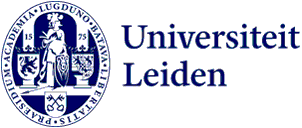
Leiden students research the Relief of Leiden: ‘It was a divided city’
If you do research on Leidens Ontzet in Leiden, you can count on a lot of interest. But Leiden Kennisstad interns Marieke Nolten and Alexander Nuijten had not expected there would be quite so much interest. They concluded a year of research with the presentation of a scientific paper.
It all started in September 2023, on a relatively small scale. ‘The core of our project was that every month a record would be published with what had happened that day during Leidens Ontzet,’ Marieke explains. ‘Alexander and I looked for things that took place 450 years ago, while two archaeology trainees focused more on material finds.’
Journalist and archaeologist Ruurd Kok turned their findings into a well-read monthly article in Leidsch Dagblad. This also triggered a flood of requests for other appearances. Alexander lists some of them: ‘Together with one of the archaeology trainees, I visited Sleutelstad, where Marieke and another trainee gave a presentation in the heritage café. I wrote a contribution for the brochure of Open Monumentendag (Heritage Day), we gave another lecture in Leiderdorp on 9 October and we spoke on the Anniversary Celebration of the 3 October Vereeniging somewhere on a grass verge in Leiden North because something had happened there 450 years ago. We've really been to places I never thought I'd see beforehand.'
New discoveries
‘It was great fun to see how Leidens Ontzet lives among the population,’ Marieke adds. ‘Normally, as a scientist, you’re in a bit of an ivory tower, but now we saw how valuable it can be to translate to a wider audience.’ Alexander: ‘This festival brings the whole city together. Extra research and attention can then be a meaningful addition.'
So what did they discover with that extra research? ‘Leiden was a divided city at the time,’ says Alexander. 'In the memory culture, everyone seems very united, but if you go back to the sources, you see that a large part of the population was Catholic. By no means everyone supported the Revolt.' Moreover, people were generally more concerned with themselves than with politics. ‘There was a lot of messing around with the bread,’ laughs Marieke. ‘They put in too little rye or even mixed sand with the flour.’
Scientific addition
In addition, there were findings that they could not put directly into their activities for the public. ‘When you’re dealing with the public, there’s less room for shades of meaning,’ Marieke explains. 'Sometimes I found something interesting, but then it no longer matched another source. Added to that, our starting point was a chronicle from 1974 with quite a few inaccuracies, andwith no reference to sources. That’s interesting for historians but it’s just confusing for the general public. Our article therefore became a kind of reflection of the different sources.'
Following this, students from mboRijnland created an audio tour about Leidens Ontzet: an Epic Quest along eight sites in the city. Epicquest.nl link to Leidschrift.
